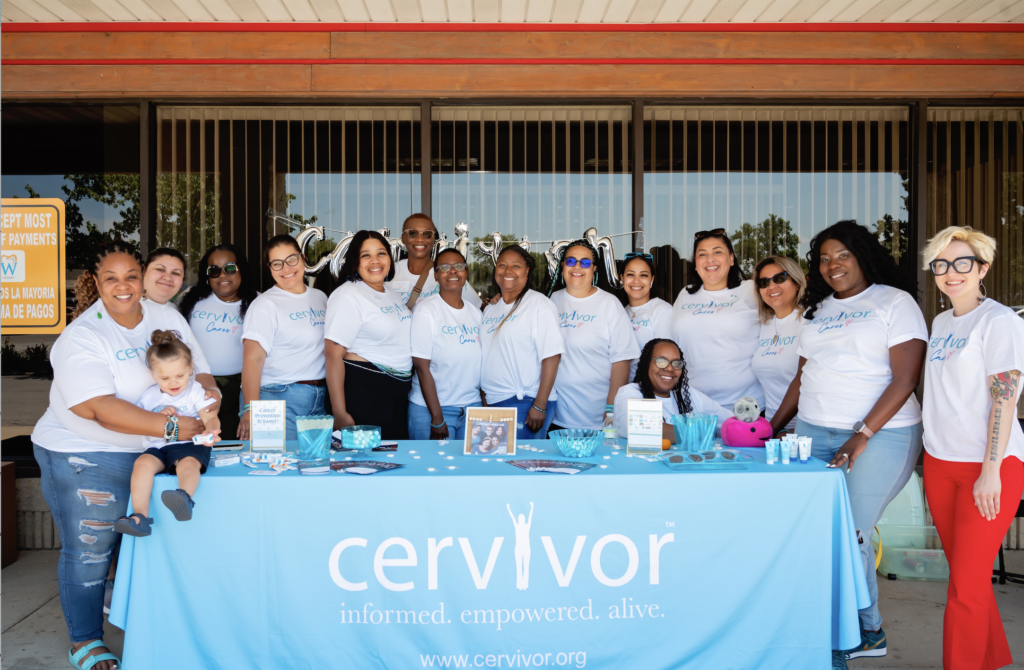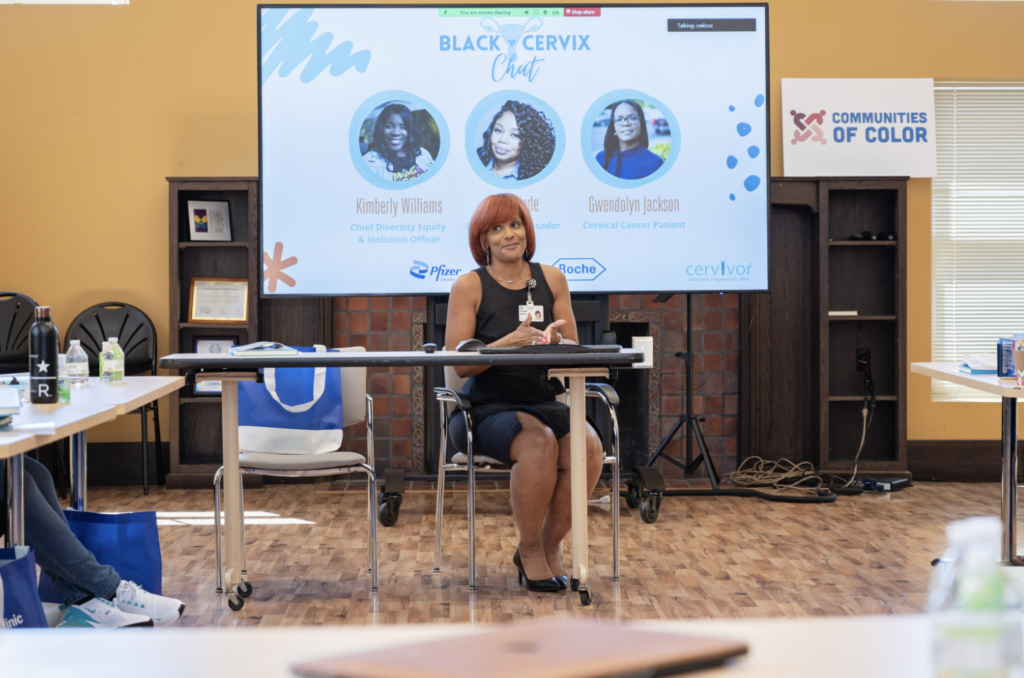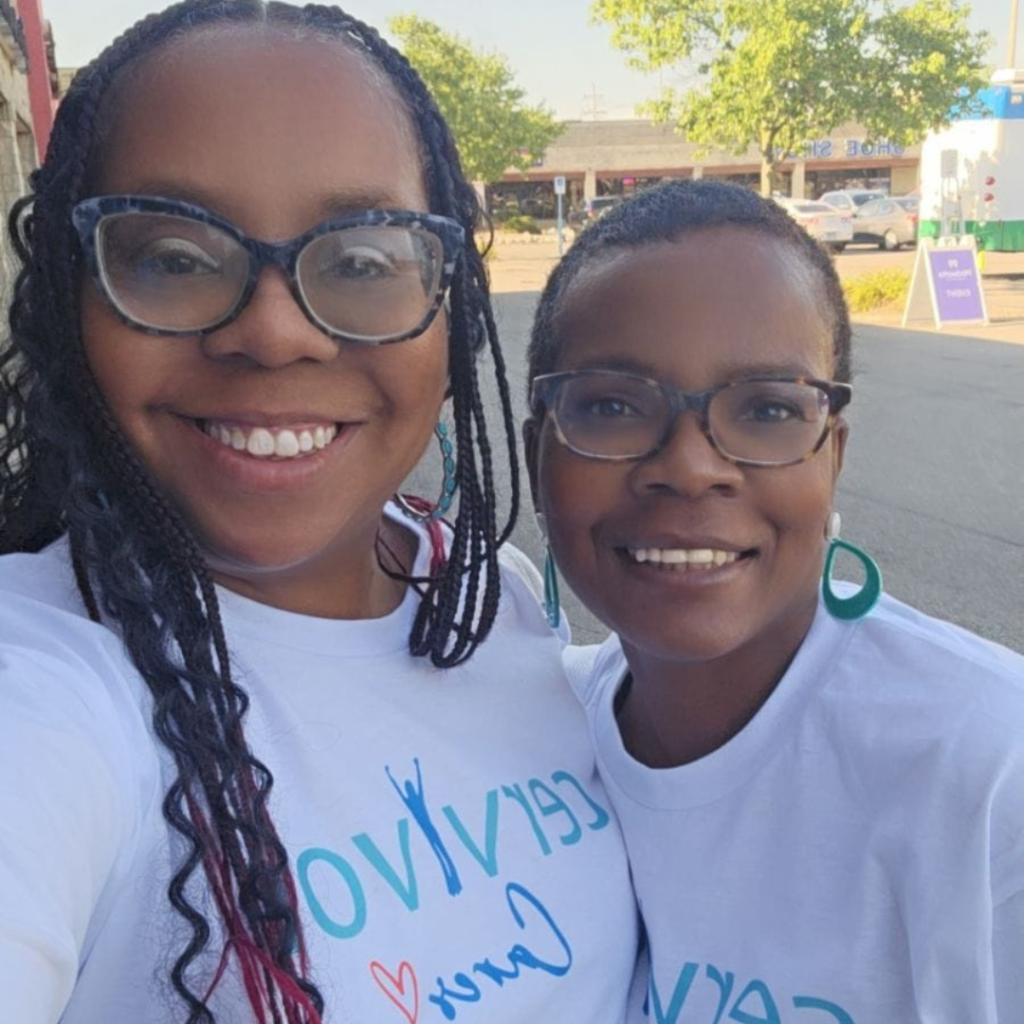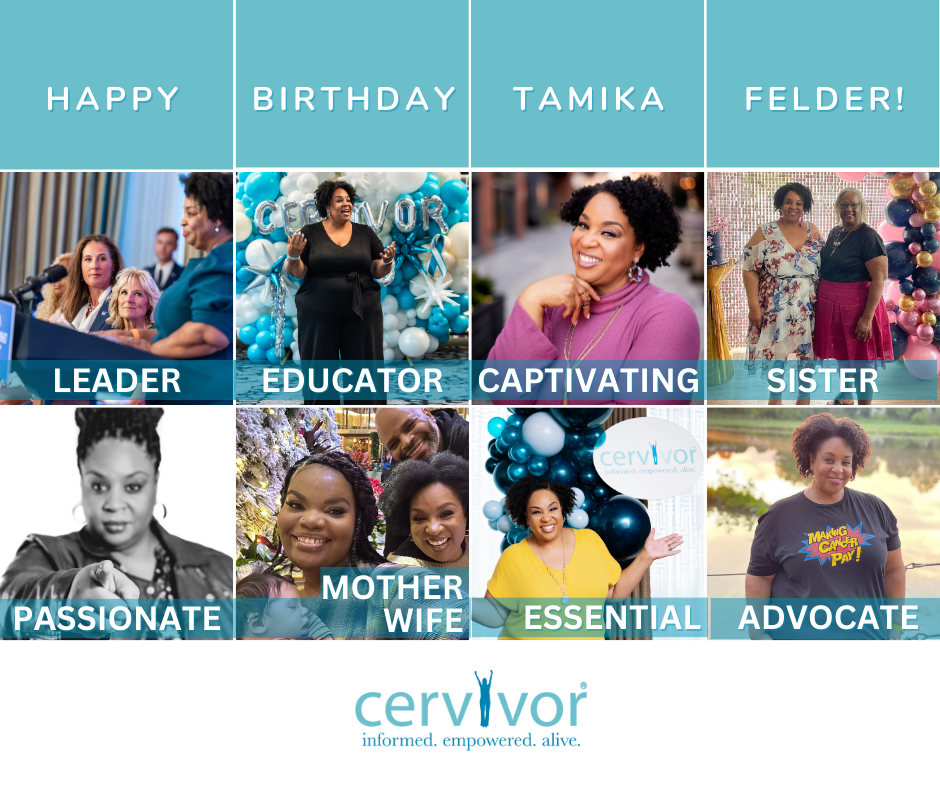Cervivor is committed to making a difference by working to close disparity gaps that continue to plague Communities of Color. This commitment led Cervivor’s Founder and Chief Visionary, Tamika Felder, and Cervivor’s Chief Diversity Equity and Inclusion Officer, Kimberly Williams to unite community members this past weekend from around the world—Honduras, St. Lucia, and U.S. states like Texas, Maryland, California, Alabama, New York, North Carolina, Iowa, and more—to Cleveland, Ohio, for the Cervical Cancer Patient Advocacy Retreat for Communities of Color. This retreat wasn’t just a local event; it was a global movement. We had community members participating via Zoom from Mexico, the Caribbean, and Africa, emphasizing our commitment to advocating for change worldwide.

Empowering Knowledge
Renowned experts from the Cleveland Clinic and Langston Hughes shared their insights on cervical cancer prevention, treatment, and advocacy. Attendees gained a deeper understanding of the importance of:
- Routine screenings and HPV vaccination.
- The need for cultural competency in healthcare.
- Ways for them to engage in community outreach and education.
After an expert-led panel, Chief Diversity Equity and Inclusion Officer, Kimberly Williams recapped the powerful message, “An educated patient takes action.”


Participants also had the opportunity to discuss self-collection cervical cancer screening and participated in discussions that answered questions about self-collection and its importance in eliminating cervical cancer. This discussion aided the advocates in understanding and promoting self-collection as a viable option for early detection when they return to their communities.
A special session with Dr. Leeya Pinder, who practices both in the United States and Africa, provided a global perspective on the issue of access (not just screening and treatment, but also clinical trials). Dr. Pinder explained the dire need for advocacy to end the disease, highlighting that many individuals with a cervix in these countries lack access to essential screening materials, leading to detrimental results. Her insights allowed participants to see the full circle of need in cervical cancer prevention and treatment.


Turning Knowledge into Action
On Saturday, Cervivor launched Cervivor Cares, which is our initiative to raise awareness about cervical cancer in communities through education, volunteering, and active presence. We engaged in community outreach, raised funds, and supported the mission to eliminate cervical cancer by providing essential resources and promoting access to necessary screening and treatment for all.
What better way to launch Cervivor Cares, than a Cervivor in Action day after a full day of classroom training? That’s right, our retreat participants increased their advocacy footprint by putting their knowledge into action. They volunteered their time at a clinic hosted by Medworks and the Cleveland Clinic that provided preventative screenings to the underserved community of Cleveland, Ohio.


It was not only an opportunity for preventive screenings, it was an opportunity for our participants to bring education and empowerment to all those who attended and were touched by our volunteers. Without hesitation, our retreat participants assisted by sharing their stories and expressing the importance of our mission. Our Cervivor Español, attendees translated to and for patients in every facet including the exam room so patients understood the physician’s questions and requests. This group put the information they learned into action immediately. Our participants met people where they were, in their daily routines —urging them to schedule their cervical cancer screenings, attend follow-ups, and the importance of HPV vaccination.
As they shared their stories and stressed the importance of cervical cancer screenings and HPV Vaccination, the clinic was buzzing with excitement. Patients and staff alike began referring to them as “The Ladies in the White Shirts,” urging others, “You need to go talk to the ladies in the white shirts.” These Cervivors were educating patients before they even walked through the door, helping them understand that regardless of their past, getting screened and following up on any abnormalities now is crucial. The retreat participants’ presence underscored the importance of the Cervivor mission and served as a reminder that their story mattered, and was already making a difference.
Embracing the Spirit of the Ladies in the White Shirts
As we reflect on this transformative event, we celebrate the spirit of “The Ladies in the White Shirts”—the Cervivor community. Each of you embodies this spirit by wearing your shirt, sharing your story, and advocating for screening. Your dedication makes you a vital part of the movement to end cervical cancer. In the words of Gwendolyn Jackson, “You have prepared me to go out into my community.” If you don’t feel prepared, we have programs available for you!


We encourage everyone to grab your Cervivor Spark, use the hashtags #Screen4Me and #Cervivor, and continue advocating for cervical cancer screenings. By sharing your story and spreading awareness, you become a powerful advocate, helping others access the screenings they need and contributing to a future free from cervical cancer. Together, as a community working to eradicate cervical cancer, let’s continue to make our voices heard, drive change, and support each other in this crucial mission.
Cervivor would like to extend its sincerest gratitude to our sponsors, including Pfizer, Genmab, Roche, and The Marchetta Family (Vince, Amanda, & William in honor of their late wife and mother, Betsy), as well as our in-kind donors, La Roche-Posay, Kafela, Lepley & Co., and Kesh the Creative, for their generous support and contributions to our mission.
